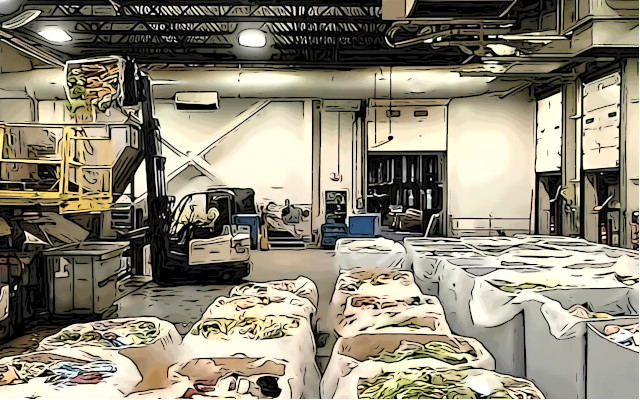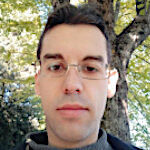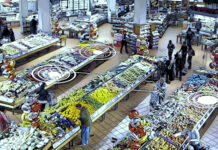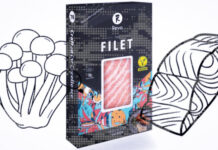The Wasteless research consortium, in Horizon Europe, is looking for experts to evaluate innovative tools for measuring and monitoring ‘food loss and waste’ (FLW). With a view to identifying possible areas of improvement on which to intervene to increase their effectiveness.
1) Wasteless, the research project
Wasteless is a research and innovation project aimed at facilitating the measurement and monitoring of ‘food loss and waste’ throughout the agri-food supply chain, ‘from farm to fork’.
The instruments developed during the project – and tested, as appropriate, in one or more phases of the supply chain (i.e. primary production, transformation, distribution, food service, consumers) – are:
– electronic register based on blockchain system;
– technology for identifying food and its quantities through images;
– AI-powered supermarket order management system;
– surplus measurement and management tool;
– device for measuring domestic food waste. (1)
2) Evaluation of tools and methods
Project results are subjected to different types of evaluation. Both by the actors in the supply chain who participated in the tests and surveys, and by working groups internal and external to the consortium. The evaluation includes:
-analysis of test results (raw data and their processing) and gap analysis;
– identification of critical factors for the adoption and implementation of digital tools;
– overall estimate of the effectiveness and efficiency of the tools;
-scalability prospects, also taking into account the needs of the national agencies responsible for these tasks.
3) Role of external experts
The contribution of external and independent experts is very important, from a technical and scientific point of view, to validate the tools and identify any limitations on which to intervene during the work in order to better achieve the objectives of the Wasteless research project
The ratings are scheduled in two rounds, so as to:
-collect in a first phase the opinions useful for sharing the opportunity of possible modifications, respecting the original structure and concept proposed by the developers;
-evaluate the project results and their overall outcomes, in the second round, also taking into account the first assessments and the solutions adopted in relation to them.
4) Evaluation structure
Joint Research Centre (JRC, European Commission) has published a report – ‘Assessment of food waste prevention actions’ – where the main actions aimed at preventing and reducing food waste are listed, following a scientific review by its researchers at the Ispra centre (Varese, Italy). The results of this work have allowed JRC to propose a framework to evaluate FLW prevention activities. (2)
Digital tools are framed within the scope of actions aimed at promoting ‘supply chain efficiency’, with a view to reducing food losses and waste. These tools can intervene on the entire process or on individual products (including packaging), in addition to providing indications on the prevention measures to be adopted.
JRC researchers recommend evaluating the effectiveness and efficiency of actions and instruments considering, in particular, the following aspects:
– identification of SMART objectives (Specific, Measurables, Achievable, Reasonable, Time-Bounded);
– definition of basic values (baseline values);
– accuracy of the Key Performance Indicators (KPIs);
– implementation of a monitoring system to evaluate progress against the planned objectives.
Fig. 1 – Proposed criteria for the evaluation of food waste reduction and prevention actions (source: JRC)
5) Why to participate
It is proposed to independent experts to participate in the evaluation of #Wasteless tools to contribute to a goal of collective and shared interest, the prevention and reduction of ‘food loss and waste’.
Identification of the causes and areas where food losses and waste are most widespread, their measurement and the estimation of the related costs, constitute the basis for promoting effective measures to:
-reduce food losses and waste, promoting their redistribution (e.g. donations) and reuse. Where possible in the food sector, or in other sectors (e.g. medicine, cosmetics) of equal value (upcycling). (3)
6) How to participate
The experts interested in evaluating the tools can reach out to the contact person at the following email: res@wiise.net or register to the Community of Practice (CoP) of the project, specifically indicating the willingness to participate in the evaluation process. (4)
A model of evaluation with all the detailed information on the tools and methods of compiling the report will be sent to all those who request it. With the hope of a maximum diffusion with other experts who may be interested.
Dario Dongo and Andrea Adelmo Della Penna
Footnotes
(1) Dario Dongo, Andrea Adelmo Della Penna. Wasteless, reduce and valorize food waste in blockchain. GIFT (Great Italian Food Trade). 12.7.24
(2) Caldeira C. et al. (2019). Assessment of food waste prevention actions – Development of an evaluation framework to assess performance of food waste prevention actions. Publications Office of the European Union, https://data.europa.eu/doi/10.2760/9773
(3) Dario Dongo. Upcycling, the high road of research and innovation. FT (Food Times). January 1, 2023
(4) Wasteless community of practice. Registration https://wastelesseu.com/registration









